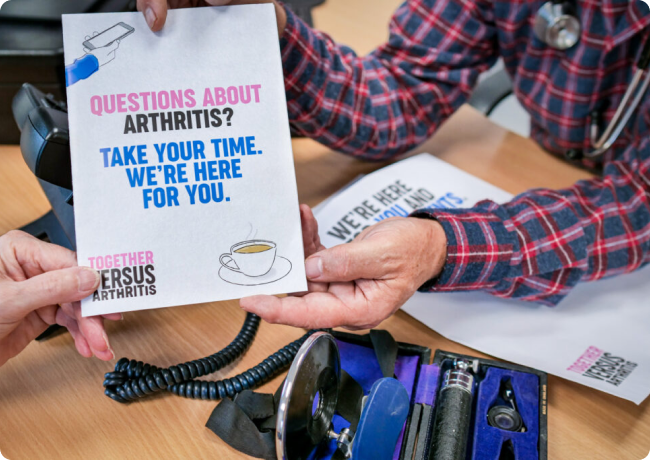Speak Their Language: Making Crucial Information Accessible for All

In a world where information is increasingly shared through digital channels, many older adults are left behind, struggling to access the essential services and resources they need. According to Age UK, nearly 3 million elderly people in the UK have no internet access, meaning they often miss out on crucial information related to healthcare, government services, and community support. This is why making crucial information accessible for the elderly is more important than ever.
At IDS Media UK, we believe in breaking down these barriers by providing alternative communication methods that make vital information understandable and accessible for everyone. Whether it’s through print materials, clear language, or targeted outreach, our goal is to ensure that older populations are not left out of the conversation.
The Challenges of Making Crucial Information Accessible for the Elderly
Older adults face several unique challenges when it comes to accessing important information. Many struggle with digital literacy or do not have reliable internet access. Others may face physical barriers, such as poor eyesight or cognitive difficulties, making it harder to absorb complex information.
The result? Many elderly individuals remain uninformed about crucial healthcare updates, government benefits, or community services. Without accessible communication, they risk missing out on opportunities that could improve their quality of life. Making crucial information accessible for the elderly requires a thoughtful approach – one that takes into account their specific needs and preferences.
How IDS Media UK Makes Crucial Information Accessible
At IDS Media UK, we specialise in distributing materials that are designed with the elderly in mind. Our experience working with health organisations supports our focused approach, centred around three key principles:
- Clear, Simple Language: Strip away jargon and complex language to make information easy to understand. Whether it’s a flyer about healthcare benefits or a brochure explaining government services, always use concise, straightforward wording to ensure that the message is clear from the first glance.
- Easy-to-Read Formats: Print materials remain one of the most effective ways to reach older adults. Design brochures, flyers, and posters with large fonts, high-contrast colours, and clear headings to make the content as readable as possible. Visual aids like icons and simple graphics further enhance comprehension, helping individuals absorb the message quickly.
- Strategic Placement in Familiar Spaces: Older adults are more likely to engage with printed information when it is placed in trusted, familiar environments. That’s why IDS Media UK works with GP surgeries, pharmacies, and hospital waiting rooms to ensure that crucial information is displayed where elderly individuals already go for healthcare and support.
Why Print Is a Vital Tool for Elderly Information Access
In a time when so much communication happens online, it’s easy to forget the power of print. However, for elderly individuals, print remains an essential medium. Flyers, posters, and brochures offer tangible, easy-to-access information that can be referenced multiple times. Unlike fleeting digital ads or emails, a well-placed brochure in a GP surgery can be taken home and reviewed at leisure, offering a sense of permanence and reliability.
For example, a simple flyer explaining how to apply for Pension Credit or Housing Benefits can make a world of difference to someone who isn’t familiar with navigating online forms. By placing these materials in locations like pharmacies and hospitals, IDS Media UK ensures that the information is accessible to those who need it most.
The Role of Visuals in Enhancing Accessibility
Visual communication plays a crucial role in making information accessible for the elderly. Many older adults benefit from simple, uncluttered designs that use visual cues to guide their understanding. At IDS Media UK, we focus on distributing materials that balance text with visual aids, helping to break down complex information into manageable, digestible pieces.
For instance, a poster in a hospital waiting room might use icons and images to explain how to sign up for local health services, making it easier for elderly individuals to follow along without feeling overwhelmed.
The Human Impact of Accessible Information
Ensuring that the elderly have access to crucial information isn’t just about delivering facts – it’s about improving lives. Many older adults face social isolation, financial hardship, or declining health, all of which can be exacerbated by a lack of access to information. When they are empowered with the knowledge of available services, healthcare options, and community support, their overall well-being improves.
By making crucial information accessible for the elderly, we can reduce the human costs of information gaps. Accessible communication promotes inclusion, dignity, and independence, allowing older individuals to remain engaged with their communities and stay informed about the resources available to them.
Crucial connections
At IDS Media UK, we are committed to making crucial information accessible for the elderly through strategically placed print materials and effective digital media. We invite healthcare providers, pharmacies, and community organisations to partner with us in designing communication strategies that meet the needs of older adults. Together, we can ensure that no one is left behind when it comes to accessing essential services and support.
If your organisation is ready to improve the way you communicate with elderly audiences, contact IDS Media UK today. Let’s ensure your campaign hits the right audience at the right time.